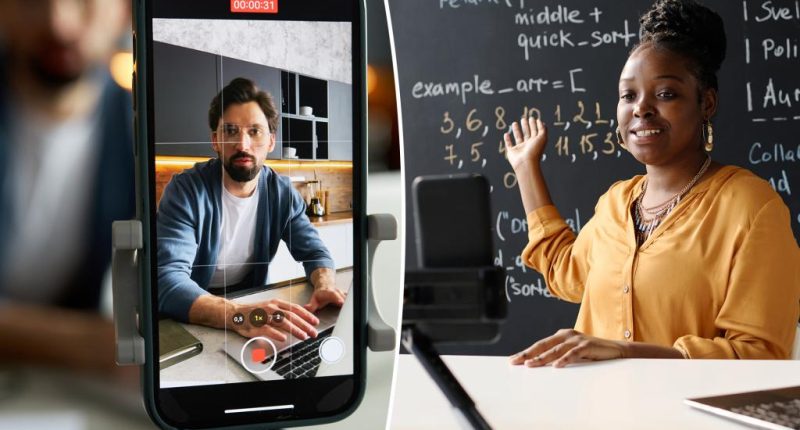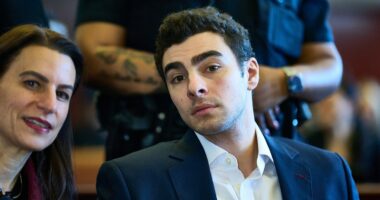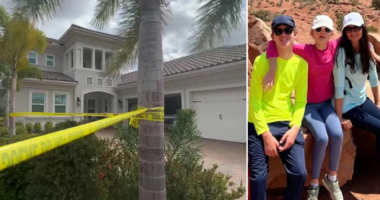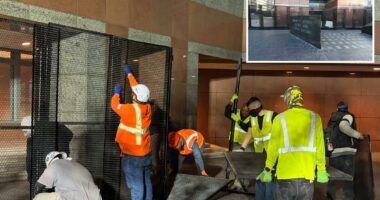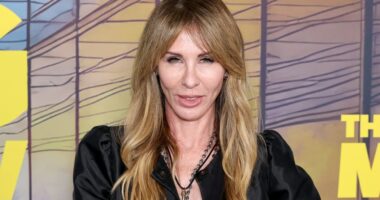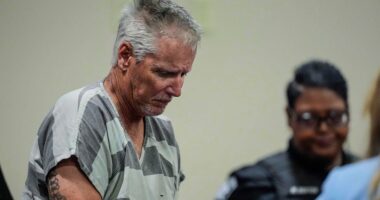Share this @internewscast.com

In a school environment, your childâs teacher is usually nothing more to you than what appears at face value.
They are the individuals you rely on to instruct your child in subjects ranging from math and history to essential life skills; they’re the names that appear on report cards and the faces you meet during parent-teacher conferences and at school events.
However, it’s important to remember that they are also individuals with personal lives beyond their professional duties. In this digital age, where our actions are often exposed to the public eye, it has raised concerns among parents about how to maintain a healthy balance between personal and professional spheres to ensure everyone’s safety.
âWhen I looked at their page, it was a current teacher from my childrenâs schoolâ
This week, an Australian mother expressed her dilemma in the Australian School Mums Facebook group upon discovering that her child’s teacher also works as an influencer outside the classroom.
The teacherâs content in particular, the woman wrote, revolved somewhat around teaching, but also contained some topics she wasnât entirely comfortable with, like their political opinions, and stances on other teachers and the education system more generally.
âI had a recommendation on my FYP to follow a creator and when I looked at their page it was a current teacher from my childrenâs school,â the poster wrote.
âI ended up blocking the recommendation as their content doesnât align with mine.
âThey share some fairly strong opinions on various topics including politics, parenting styles and the school education system and also support larger creators who are at times controversial.â
People are torn
Commenters on the post were divided, with many quick to advocate for the teacher and their ability to experience freedom outside of their career.
âItâs so interesting isnât it how teachers canât have a life outside of school! Theyâre held to a higher standard than politicians!â one person said.
âParenting styles and the education system? I think sheâd be well qualified to share her thoughts. Live and let live!â said another.
Others were more âtraditionalâ in their views, calling the hobby unprofessional regardless of the content.
âTeachers are entitled to have a life outside work, but they are damaging their own reputation by posting it publicly. All my friends who are teachers have their profiles set to private as well. Maybe it’s a generational thing,â one person commented.
âI work with kids and personally would not ever share this type of content because of my professional role and wouldnât want to see this content from a teacher at my childrenâs school,â another agreed.
The vast majority, though, sat in a third camp somewhere in between, providing a solid âit dependsâ – citing school and department-specific codes of conduct as a base point.
âI have a few friends who are teachers and also create content… some related to the subject they teach [and] some are unrelated. I figure so long as they aren’t sharing anything about the school or students, then it’s up to them. For some, it’s an additional income, some it’s a creative outlet. I don’t see an issue with it,â said one commenter.
âI think itâs fine as long as they are not sharing anything thatâs outrageous or controversial⦠a teacher sharing teacher related content is fine, or sharing content not related to teaching (eg. Hobby type accounts) would be fine with me. I wouldnât quite be ok with it if it was something that really didnât align with teaching,â another shared.
What are the rules here?
Like in many jobs, teachers have to adhere to an array of guidelines and policies around what they can share publicly online.
Whilst many opt to change their name and make their profiles private to skirt around these entirely (because itâs also okay to not want your students to see what you did on the weekend), others are treading carefully through it.
For teachers under the New South Wales (NSW) Department of Education, these guidelines get quite specific, saying that creating educational content in particular is both supported and encouraged – as long as they protect the privacy of their students and colleagues, and obtain consent where needed.
They are also able to participate in public debate in a private capacity, as long as their comments are identified to be personal views, donât disclose information concerning their work or workplace, and that it is lawful.
Teachers in the NSW Department of Education can even use content creation as secondary employment, provided they obtain approval.
âTeachers creating content on personal social media channels need to adhere to the NSW Department of Education’s guidelines regarding professionalism and privacy, which are outlined in the departmentâs social media policies,â a DoE spokesperson told Kidspot.
âSome of our teachers have created engaging educational content via a personal account, including maths teacher Eddie Woo who has almost two million subscribers on YouTube alone and is renowned for making the subject more accessible and enjoyable for students.â
A spokesperson from Catholic Schools Parramatta Diocese shared similar points with Kidspot, encouraging employees to spread their wings when it comes to social media – as long as it’s separate from their professional lives, so as to keep students and staff safe.
“At Catholic Schools Parramatta Diocese we use social media to share the great things that are happening across our 80 schools. We lead regular training sessions with employees about best practice when it comes to posting school content on social media,” the spokesperson said.
“This extends to encouraging employees to have separate accounts and/or profiles to maintain a distinction between their professional and personal use of social media to protect both their privacy and reputation.”
Would we be okay with it?
Of course, even if something is technically allowed, not everyone is always going to be okay with it – and the Kidspot team has thoughts.
Overall, the consensus is that while we donât want our own kids to be in a teacherâs videos – or for them to be filming in the classroom at all ideally – anything outside of that is fair game.
âIf they are outside the classroom and it’s their own life, then cool, hope it works out. But if it is inside and they are showing faces, voices, names where information can be leaked, probably better to not do it,â Clara said.
âSuch a tricky topic because everyone is an influencer these days! I think if they were open about it and gave parents and children the opportunity to opt in or out, that’s fair. I would be fine with it as long as I was given the choice if I wanted my kid in any public video posted on social media and they didn’t just go off and show my kid themselves – or discuss their academic process etc,â said Leah.
âIt depends! I think if they keep the two worlds separate, sure. I know it’s really popular for teachers to create content that’s like a âclassroom tourâ or a âwhat I eat while I teach todayâ – if they’re focused on that I’d ask how focused they are on my child’s education. If they’re promoting hi-smiles after class then make that extra buck for sure!â Lauren agreed.
âI wouldn’t want my kids in any of their videos or on their personal social media. If they want to do stuff in their own time and create content about their teaching role or interests, then that’s okay. I think schools should be regulating what teachers can film on school grounds,â said Liz.
Where do you stand?
